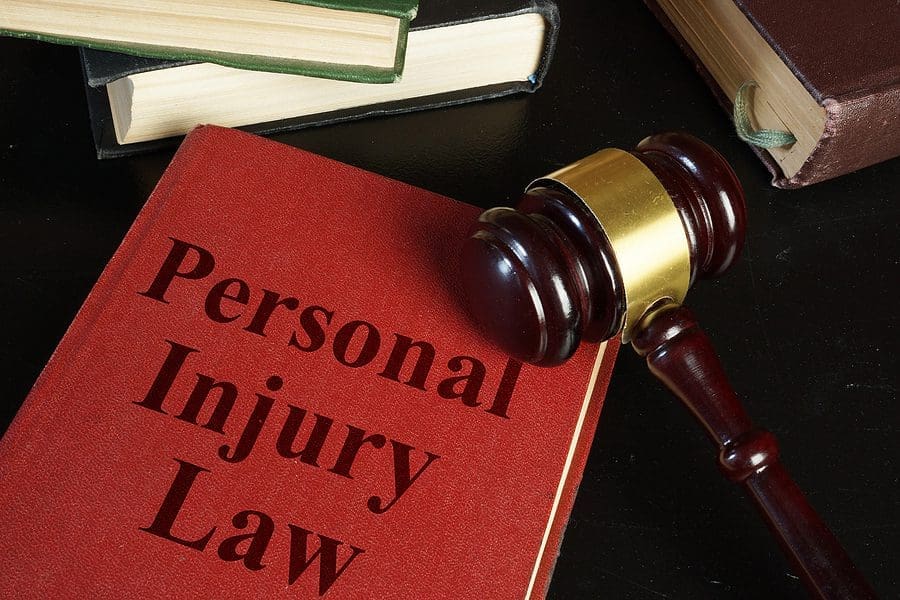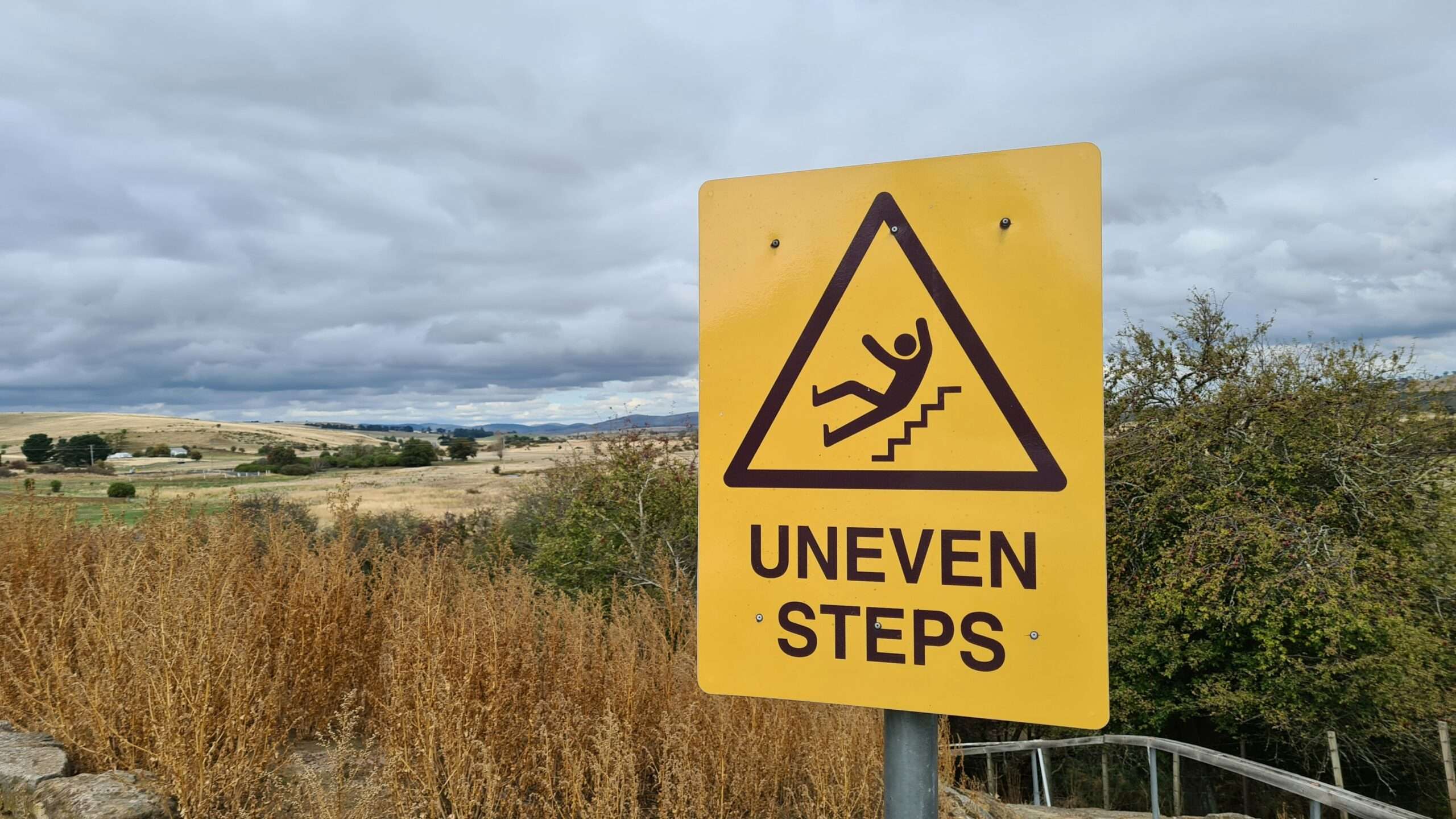JONES LAW GROUPYour Lawyers for Life! Personal Injury Law Firm in St. Petersburg

Failing to either seek medical treatment or to follow the advice of a doctor is one of the biggest mistakes someone who suffers an injury in an accident can make. Not only is it bad for their health, but it’s also bad for their personal injury case. An insurance company will do whatever it can […]
Call our personal injury law office directly at (727) 512-9847
At Jones Law Group in St. Petersburg, FL, we would like to hear from you. Contact us for a free personal injury case consultation.
Call our personal injury law office at (727) 512-9847
Get educated on the Florida's personal injury laws and more.
Failing to either seek medical treatment or to follow the advice of a doctor is one of the biggest mistakes someone who suffers an injury in an accident can make. Not only is it bad for their health, but it’s also bad for their personal injury case. An insurance company will do whatever it can to deny compensation. When someone chooses not to obtain medical help, that’s playing right into the insurer’s hands.
If you’ve suffered harm due to another party’s negligence, please don’t make the mistake of not doing what your doctor tells you to do. You not only want to recover physically as soon as you can, you also want to have the best chance of obtaining compensation, right? The best way to accomplish both goals will be to follow your doctor’s orders.
The attorneys with Jones Law Group can help you get the money you deserve for injuries caused by the negligence of others. Give us a call at (727) 571-1333, or use our online form to schedule a free consultation. In the meantime, here’s some information on just how essential it will be for you to heed the advice of the medical professionals who are working to help you get back to normal.
Suppose you slipped on a wet grocery store floor or were hit from behind by someone who was texting while driving. You might feel a little back or neck pain, but you don’t think it’s bad enough to go to the doctor. All you need is a little rest, and things will be fine.
Failing to get medical help is never a good idea, and one big reason is that seemingly minor issues can eventually become significant health problems. If you refuse medical treatment, you could wind up suffering intense pain for years to come. You’ll also make it easy for the insurance company to either make a ridiculously low settlement offer or to deny your claim outright.
There are two primary examples of a gap in care. One is the gap between the accident and receiving medical care. In some instances, this gap can be six months or even longer. The other is when an accident victim sees a doctor right away but waits a few months before scheduling a follow-up appointment.
Either kind of gap can do a lot of damage to a personal injury case. The insurance company adjuster will use that gap to argue the victim wasn’t badly hurt – or wasn’t hurt at all. The accident victim may not obtain any compensation as a result and could be on the hook for all medical bills.
To have the best chance of having a successful personal injury claim, you and your attorney will have to be able to counter the tricks that insurance companies will play. Adjusters will go to great lengths to discredit injury victims, and they’re not at all above talking to doctors to find out what those victims said about their accident.
To answer the question, yes, what you say to a doctor could conceivably be used against you. That doesn’t mean, of course, that you should ever lie about either your current condition or your medical history.
It does mean that you should never guess when it comes to the details of your accident. There’s at least a chance your doctor will ask you what happened to get a better idea of how badly you’ve been hurt and how to treat you best.
For instance, they may want to know how fast the other car was moving. If you say it was going 50 miles an hour when it was only going 20, that could hurt your case. The doctor may write down that 50 mph answer and put it in your file. If that file is later entered into evidence, that could be used to undermine your credibility. Just stick to what you know for sure and don’t speculate.
A medical expert witness could be a huge help to your case. An expert can provide their opinion on the severity of your injury, what caused that injury, and what kind of treatment you’ll need – both now and in the future. This testimony could make your case much stronger.
The most important thing you can do if you’ve been hurt in an accident is to get medical help as quickly as possible. As you already know, it will help your physical health and your personal injury case.
But there are sometimes circumstances that could keep you from getting that help. You may have developed an illness that kept you from seeing a doctor, or there could be some other legitimate reason for a gap in care. If this applies to you, tell your doctor and your attorney as soon as you can.
Please don’t put off seeking medical help. If you have a gap in care, it won’t necessarily end your case, but it will make it more difficult for you to win.
The personal injury attorneys with Jones Law Group want you to get back to full health as quickly as possible. We also want you to take the steps needed to have the best possible chance of getting every penny you deserve. That means not only talking to a doctor as fast as you can, but also following that doctor’s advice. If you do this, that will help us provide you with the most effective legal representation possible.
Learn more by contacting us online or calling (727) 571-1333 for a free case review.

Recovering compensation without a personal injury lawyer is a challenge in most car accident claims. Summary After a Florida motor vehicle collision, you may see your medical bills mount up within a few days. This can be daunting, especially if you know it’s going to be a while before you can work again. Many people […]

Whether you’ve been involved in a motorcycle accident, a bicycle accident, or any other kind of accident that happened due to someone else’s carelessness, you’re probably wondering whether or not hiring a personal injury attorney is worth it. At Jones Law Group, we not only believe you should have the help of an experienced lawyer, […]

Have you been injured in a slip and fall accident in Tampa? Jones Law Group, a premier St. Petersburg-based personal injury law firm, is here to help. Our experienced slip and fall lawyers in Tampa fight for maximum compensation, handling everything from evidence collection to insurance negotiations. Contact us today for a free consultation and let us secure the justice you deserve.

Motorcycle accidents can cause severe injuries, create mountain of debt, and leave the rider and their family financially stressed. Motorcyclists don’t have as much protection as passenger vehicle do, so motorcycle-related injuries tend to be much more severe or even fatal. Motorcycles are also less visible to motor vehicle drivers and are harder to control […]

By: Heath C. Murphy + – Personal Injury Motorcycle Rally season is here. Myrtle Beach Bike Week begins May 8, 2015 and culminates on May 17, 2015.[1] What does that mean? It means that a couple hundred thousand Harley enthusiasts and bikers will descend upon Myrtle Beach for a week of fun, sun and riding. […]

Car accident victims, bike accident victims, and victims of other types of accidents caused by another’s negligence don’t get to pick witnesses. They’re present due to circumstances. However, accident victims can pick expert witnesses, whose presence can oftentimes make or break their case. Jones Law Group attorneys can find an expert witness who could provide […]
Speak with us before time runs out! In Florida, you have a limited window to file a personal injury case, so speak to an Attorney today.
Call our personal injury law office directly at (727) 512-9847
Jones Law Group is a dedicated personal injury lawyer in St. Petersburg, FL, serving the Tampa Bay area since 2006. Our experienced attorneys specialize in car accidents, slip and fall cases, employment law disputes, construction law issues, and overtime wage claims, fighting for maximum compensation on a contingency fee basis. Contact us for a free consultation to discuss your case.
Call our personal injury law office at (727) 512-9847
© Copyright 2006–2025 Jones Law Group Attorneys at Law. All rights reserved. Privacy Policy Terms of Use
Attorney Advertising.
The information on this website is for general information purposes only. Nothing on this site should be taken as legal advice for any individual case or situation. This information is not intended to create, and receipt or viewing does not constitute, an attorney-client relationship. Past results do not guarantee similar outcomes.
Are you injured or wronged and interested in a consultation? Fill out the form for a free consultation with us.